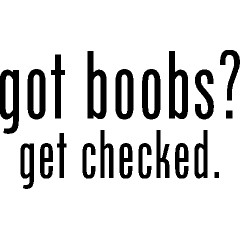(ThyBlackMan.com) With the summer months arriving in the St. Louis area I am seeing more and more advertisements for The Susan G. Komen Race for the Cure, in which St. Louis ranks number one in the country for the most participants since 2010. The Susan G. Komen Race for the Cure was named after Susan G. Komen who fought breast cancer until she lost her battle with the disease. The Susan G. Komen Race for the Cure is held to raise money for breast cancer research and financial assistance to those in need.
This led me to think about men and breast cancer, which I learned about years ago. Normally when people think of breast cancer only women come to mind, when in fact men may have to deal with the disease also. This may come as a surprise to some people since breast cancer is looked upon as a woman’s  disease.
disease.
According to http://breastcancer.org breast cancer does occur in men, especially elderly men. Just as in African American women, African American men are affected by cancer more than white men and they are three times as likely to die from breast cancer. These factors may be due to the lack of treatment and the lack of knowledge.
African American men were less likely than white men to be referred to an oncologist or to get chemotherapy for breast cancer; this may be because of disparities in healthcare for African American men.
According to http://medicine.net men possess a small amount of nonfunctioning breast tissue (breast tissue that cannot produce milk) that is concentrated in the area directly behind the nipple on the chest wall. Like breast cancer in women, cancer of the male breast is the uncontrolled growth of the abnormal cells of that breast tissue.
Since breast cancer is normally viewed as a female disease men may not actively seek testing for breast cancer as a woman does. So how can men prevent the spread of this disease? Recognizing the symptoms is the first step to catching it early on.
You should look out for breast mass, skin dimpling or puckering, nipple retraction and redness or scaling of the nipple or breast skin. When you consult your physician your doctor should take a careful assessment of your medical history and if necessary go on to order a mammogram, a biopsy, or other tests.
Even though breast cancer in men is rare, accounting for only 1% of breast cancer, knowledge and being aware of its existence is important. For more information on African American males and breast cancer visit the African American Breast Cancer Alliance and links to other pertinent resources.
Staff Writer; Eleanie Campbell

















2 Comments